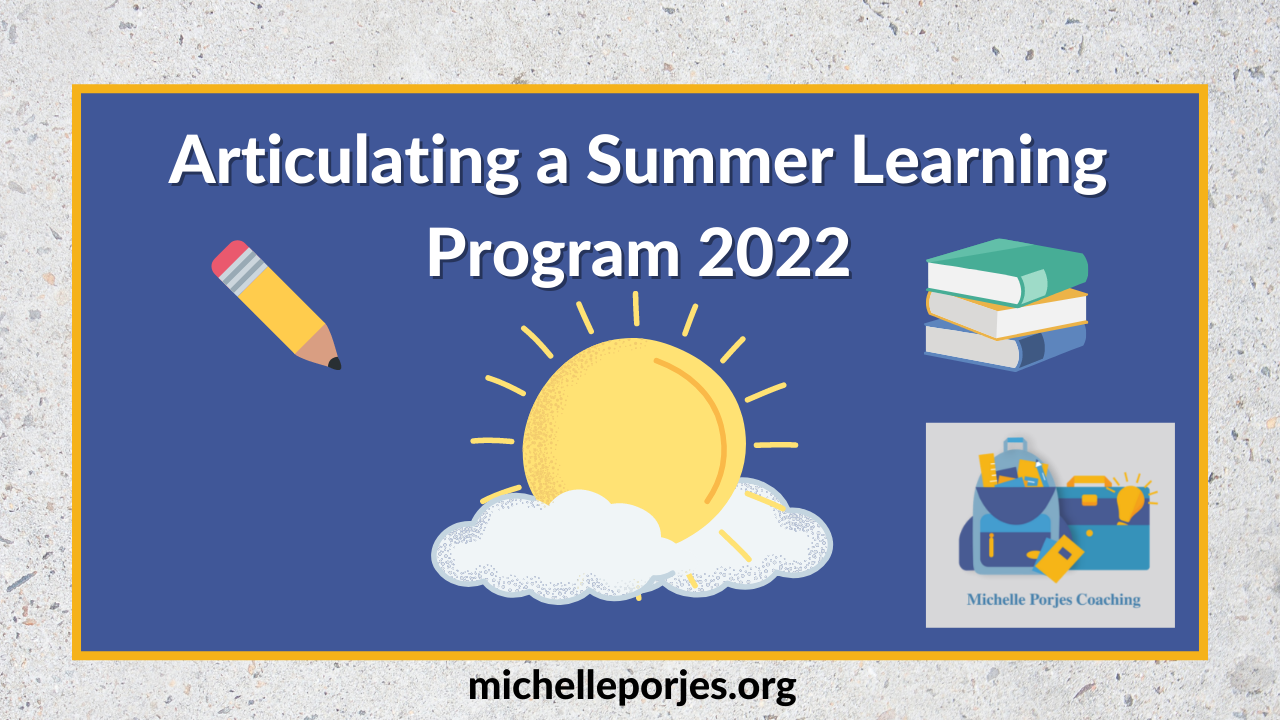I’m excited to write this article. As someone who spent over two decades working in private schools, I know summer is a magical time. For me as an individual, I love the longer days, the warmer weather and the break from the routine. For me as an educator, I love the possibility of unique learning opportunities and the potential of academic growth that can be made during summer vacation.
Don’t get me wrong, I think EVERYONE-educators, parents and students- needs a break from formal education. And, for some students, the arrival of summer creates unique opportunities to solidify skills, enrich their learning or prepare for the upcoming grade. Those students who need a detailed-oriented approach to learning, extra repetition of concepts, or more individualized education don’t just survive with summer learning, they thrive.
Paul Von Hippel from the University of Texas looked at several studies on summer learning and he did not find consistently positive results. However, one thing, in his opinion, was true: “Nearly all children, no matter how advantaged, learn much more slowly during summer vacations than they do during the school year.” (2022). This allows us to see the summer as a unique opportunity particularly for differentiated learners. For these students, summer is an opportunity for students who struggle and are on the lower ends of performance to lessen the academic achievement gap. If educators can help them grow faster while other students are slowing down, progress is made.
So rather than debate the merits or myths around summer learning, I want to present another article on “best practices” for summer learning. (Here’s my most recent “best practices article). Perhaps, a few suggestions may pique your interest as you begin to think about summer, individual student need and what summer learning may look like for your school.
- Summer learning is not like the summer school of years past. We are all part of schools and learning systems that articulate goals, objects, curriculum. The same needs to be true of a summer learning program.
It is most impactful when the following is in place:
- It is linked to the goals, objects and curriculum of a specific school.
- Classroom teachers have significant input on what children need to work on and even have the opportunity to create the materials to be used.
- It occurs 3-5 times per week.
- The focus is on consistent attendance, strong adult-child relationships, and high student engagement
- Learning, behavior and social progress should be routinely shared with parents.
- A good starting point for summer learning is being thoughtful about how to engage the reluctant learner. Ways to engage these learners include a focus on creating meaningful learning experiences that are filled with opportunities for peer to peer discussion and interaction. Instructional methods that have a different feel than school year learning and the use of high quality engaging materials.
- High quality staff with training or support in behavior, socialization, and delivery of information helps to maximize learning during the summer. This focus starts with training those who work with children. This is essential as often the adults responsible for the children are not seasoned teachers.
- Summer learning needs to include a focus on social/emotional behavior and positive student behavior. Equally important is a plan for misbehavior which allows for children to take responsibility for actions and have opportunities to correct the misbehavior.
- Summer learning can be a popular academic recovery method from those who struggled during the school year. For these children, maximizing the time students spend with the past grade-level content along with knowing the prerequisites for the incoming grade is key. Best practice would be summer learning with the most current assessments of an individual child’s academic performance.
- Summer learning isn’t always about review. It can prioritize growth and acceleration and access to next year’s curriculum so that children get introduced to new concepts, build skills and develop new interests. This summer learning can be seen as summer Enrichment which can aid in buy-in. The goal of enrichment programs is to keep students engaged in learning, ensuring that summer is a season of continued growth, rather than one of any possible “slide.”
- Summer camps can be partners in the summer learning process. There are
many ways that camps create fun, engaging learning opportunities. From specialty camps, to story time, to cooking and projects with multi-step processes, these all practice fundamental skills needed for learning new information. Perhaps this is the year to strengthen the partnership with camp by offering math mornings or a summer reading book club which meets during camp?
Wishing all a smooth end to the school year and a summer of wonder.
